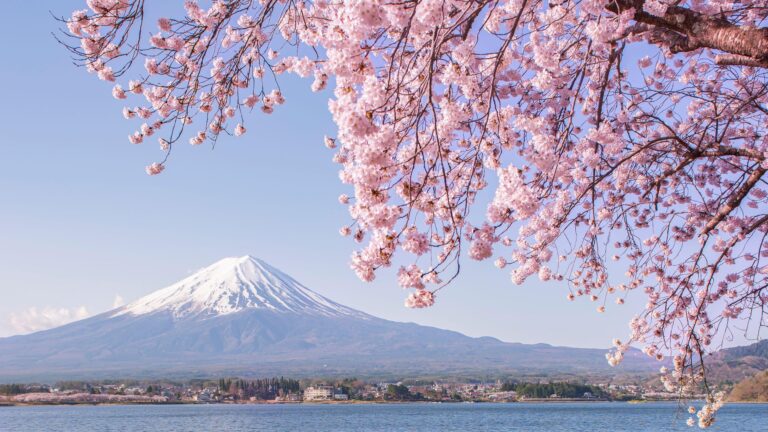Japan’s recent surge in inbound tourism, once hailed as a boon for the economy, is now revealing a more complex and contentious reality. As international visitors flood into the country, local communities and policymakers are grappling with the unintended consequences of this rapid growth. From overcrowded historic sites to strains on infrastructure and rising costs of living, Japan’s tourism boom is sparking increasing resentment among residents. This article explores the multifaceted challenges behind the country’s struggle to balance economic gains with social and cultural preservation.
Japan’s Tourism Surge Strains Infrastructure and Local Communities
Japan’s rapid influx of tourists, particularly since the easing of pandemic restrictions, has triggered unforeseen pressures on the nation’s traditional infrastructure and day-to-day life. Popular destinations like Kyoto, Tokyo, and Osaka are grappling with overcrowded public transport, inflated accommodation prices, and long queues at cultural landmarks. While tourism injects much-needed revenue, it also escalates wear and tear on heritage sites, forcing local authorities to implement stricter regulations to preserve their cultural integrity. Residents report an increasing sense of disruption, as neighborhoods once peaceful now buzz with continuous tourist activity.
Communities worldwide envy Japan’s tourism success, yet the on-the-ground reality paints a more complex picture:
- Local shops struggle to compete with tourist-oriented businesses, leading to loss of traditional commerce.
- Public services face strain due to the sudden spike in usage, impacting residents’ access.
- Noise and waste management challenges affect quality of life, especially in smaller towns.
| City | Annual Tourist Increase | Reported Community Complaints |
|---|---|---|
| Kyoto | +25% | High |
| Tokyo | +18% | Medium |
| Okinawa | +30% | Medium |
| Kanazawa | +22% | Low |
Balancing Economic Benefits with Cultural Preservation Challenges
Japan’s surge in foreign visitors brings undeniable economic perks, from increased spending in retail and hospitality to the revitalization of rural areas once deemed economically stagnant. Local businesses, hotels, and transportation services have also seen a significant boost, which helps counterbalance the country’s aging population and shrinking workforce. However, beneath these financial gains lies a growing concern over the rapid pace of change and its impact on Japan’s delicate cultural heritage.
Communities grappling with tourism’s darker side face issues such as:
- Overcrowding in sacred sites and traditional neighborhoods
- Commercialization diluting unique customs and artisan crafts
- Environmental strain on historically significant landmarks and natural scenery
| Economic Indicator | Positive Impact | Cultural Concern |
|---|---|---|
| Local Business Revenue | +30% growth in tourism hotspots | Rising prices displace traditional markets |
| Job Creation | Thousands employed in hospitality | Pressure on seasonal cultural events |
| Infrastructure Development | Improved transport links | Disruption to historic cityscapes |
` tag. Here’s the corrected version of your HTML snippet with those tags added at the end:
“`html
Japan’s surge in foreign visitors brings undeniable economic perks, from increased spending in retail and hospitality to the revitalization of rural areas once deemed economically stagnant. Local businesses, hotels, and transportation services have also seen a significant boost, which helps counterbalance the country’s aging population and shrinking workforce. However, beneath these financial gains lies a growing concern over the rapid pace of change and its impact on Japan’s delicate cultural heritage.
Communities grappling with tourism’s darker side face issues such as:
- Overcrowding in sacred sites and traditional neighborhoods
- Commercialization diluting unique customs and artisan crafts
- Environmental strain on historically significant landmarks and natural scenery
| Economic Indicator | Positive Impact | Cultural Concern | |||||||||
|---|---|---|---|---|---|---|---|---|---|---|---|
| Local Business Revenue | +30% growth in tourism hotspots | Rising prices displace traditional markets | |||||||||
| Job Creation | Thousands employed in hospitality | Pressure on seasonal cultural events | |||||||||
| Infrastructure Development | Improved
Policy Recommendations for Sustainable and Inclusive Tourism GrowthTo address the challenges brought by the surge in international visitors, policymakers must prioritize measures that balance economic incentives with social and environmental sustainability. Implementing strict zoning regulations can help control overcrowding in vulnerable neighborhoods, preserving cultural heritage without stifling local livelihoods. Additionally, introducing tourist caps during peak seasons and promoting off-peak travel can alleviate pressure on infrastructure and reduce residents’ frustration. Collaboration with local communities is essential to ensure their voices guide sustainable development, fostering a sense of ownership rather than resentment. Investment in green infrastructure and public transportation will play a pivotal role in mitigating environmental impacts while enhancing visitor experiences. A transparent framework for tourism taxes and reinvestment of these funds into community projects can generate goodwill and finance necessary urban improvements. The table below outlines key policy actions alongside their potential impacts:
In SummaryAs Japan grapples with the unintended consequences of its tourism boom, the nation finds itself at a crossroads between economic opportunity and cultural preservation. While the influx of visitors has injected vitality into local economies and globalized Japan’s appeal, it has also intensified strains on infrastructure, environment, and community life. The challenge ahead lies in crafting sustainable policies that balance growth with respect for the traditions and everyday realities of its people-an intricate task that will define Japan’s future relationship with the world’s travelers. |




